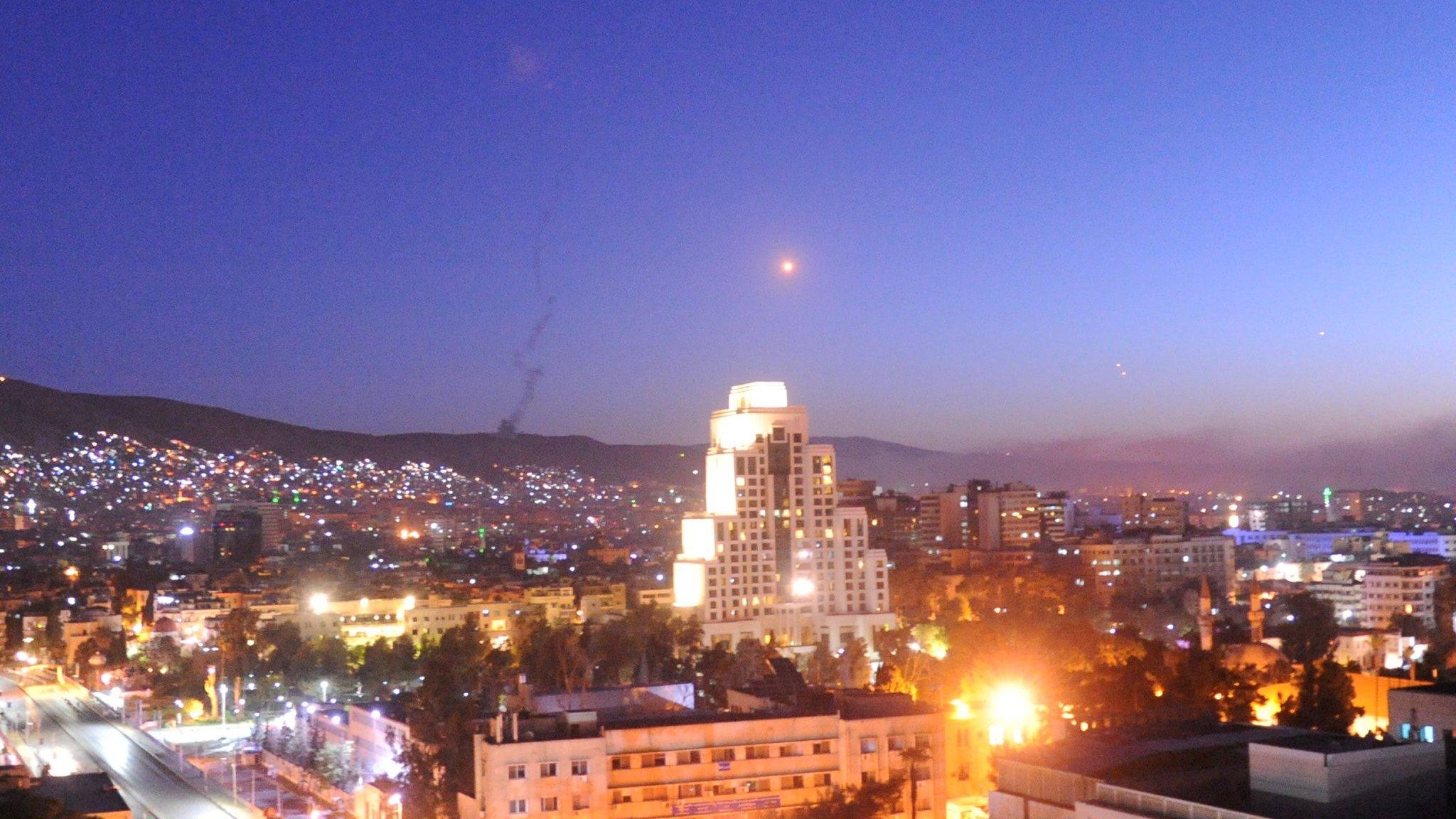Syria air strikes: Action showed enough is enough - Boris Johnson
- Published
Primary purpose of Syria air strikes was "to say no to the use of barbaric weapons", says Boris Johnson
Air strikes in Syria were about saying "enough is enough" over the use of chemical weapons, Foreign Secretary Boris Johnson has said.
Mr Johnson said the action by the US, UK and France would not "turn the tide" of the conflict and was not about regime change.
But he said he hoped it would act as a deterrent to more "barbaric" chemical attacks.
Labour leader Jeremy Corbyn has questioned the legality of the action.
He called for new legislation to ensure MPs get a vote before future military action is taken, and said he would only back intervention in Syria if the United Nations backed it.
Conservatives said this would never happen due to Russia using its veto at the UN.
Downing Street has published its legal case for its part in the strikes, which targeted military bases.
Sites near Damascus and Homs were hit in response to an alleged chemical attack on the town of Douma on 7 April.
Masa, survivor of suspected chemical attack: "Instead of breathing air, we breathed the smell of blood"
Both Syria and Russia - which provides military support to the Syrian government - have reacted angrily to the action.
'No to chemical weapons'
Speaking on the BBC's Andrew Marr Show, Mr Johnson stressed the "limits" of the intervention were to stop an apparent erosion of the "taboo" of chemical weapons.
"The rest of the Syrian war must proceed as it will," he said, adding that the "primary purpose is to say no to the use of barbaric chemical weapons".
Mr Johnson said he did not know how Syrian President Bashar al-Assad would respond, adding that if there was a repeat chemical attack, "clearly, with allies, we would study what the options were".
How the Western attacks on Syria's suspected chemical weapons sites unfolded
Opposition parties have criticised the lack of a parliamentary vote before the air strikes.
Mr Johnson promised MPs would "have their say" when Theresa May makes a Commons statement on Monday.
Mr Corbyn told the Marr show Mrs May "could easily" have recalled Parliament or delayed her decision until MPs returned on Monday.
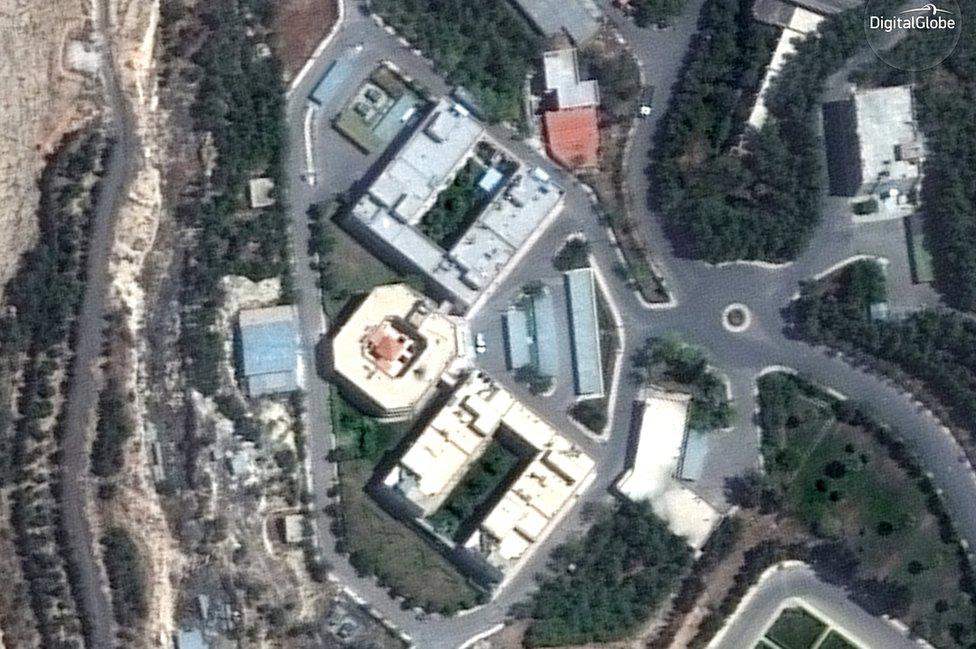
The Barzah Research and Development Centre before the air strike
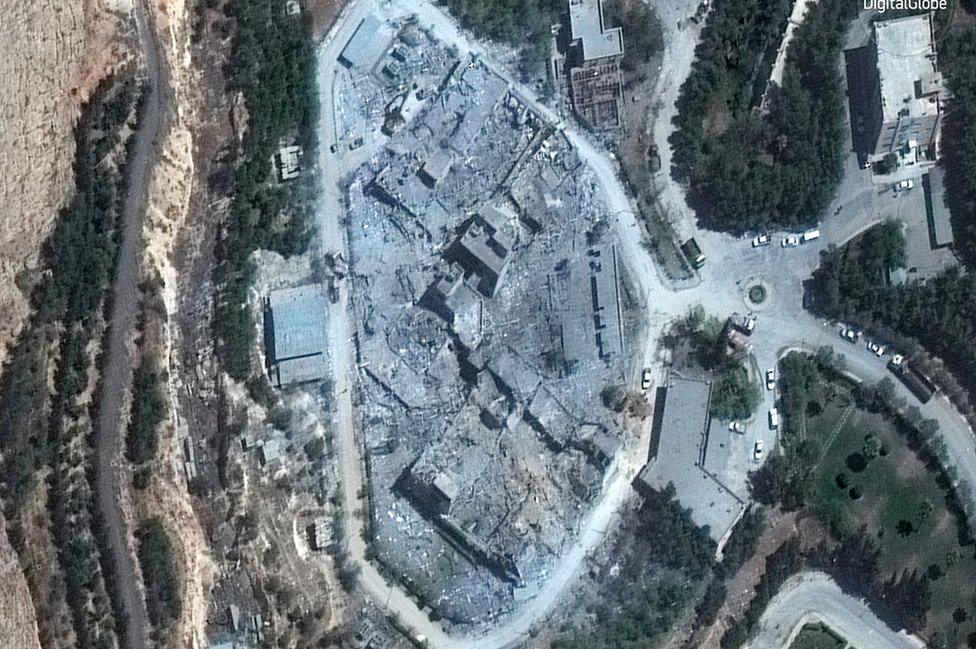
The Barzah Research and Development Centre after the air strike
He also called for a War Powers Act, "so governments do get held accountable to Parliament for what they do in our name".
He added that Labour would continue to push for a debate and a vote on the intervention, describing it as "policy made up by Twitter", in a reference to the US president's tweets ahead of the air strikes.
Mr Corbyn said he would only "countenance" getting involved in the Syrian conflict with the backing of the United Nations.
Corbyn: Trump should pick up the phone to Putin
The UN has so far failed to agree a unified response, with the US and Russia blocking each other's proposals last week.
Pushed on whether he would authorise the use of force if he was prime minister, the Labour leader said "no-one would ever say never", adding: "If we could get to a process in the UN where you get to a ceasefire, you get to a political solution, you then may well get to a situation where there could be a UN force established to enforce that ceasefire.
"That surely would save a lot of lives."
Conservative Party Chairman Brandon Lewis accused Mr Corbyn of failing to "recognise what has actually been happening".
"He knows full well Russia veto at UN," he tweeted.
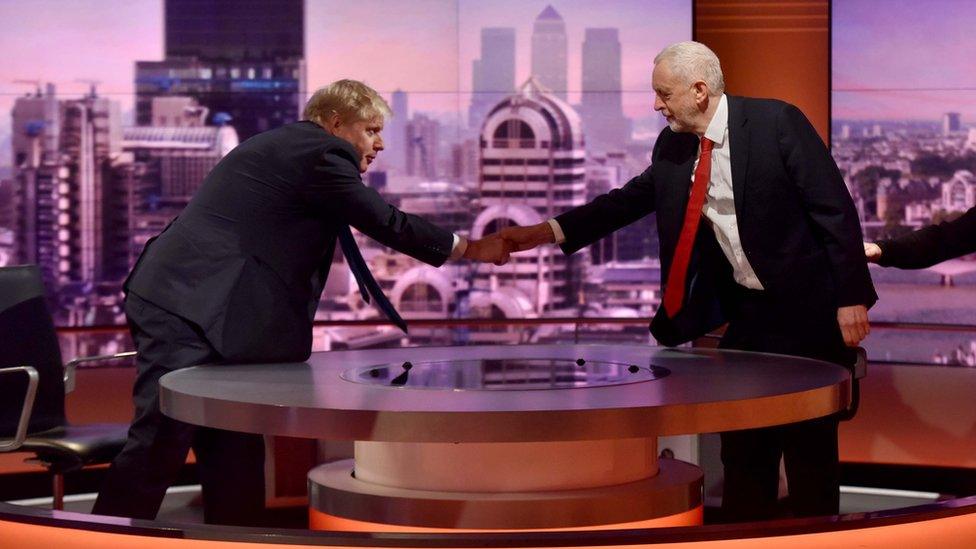
Boris Johnson and Jeremy Corbyn were grilled about the Syria conflict on the Andrew Marr show
Scottish First Minister Nicola Sturgeon described the legal basis for the intervention as "thin".
"Air strikes may make Western leaders feel that they're doing something," she said.
"In this case it feels as if it's more to do with a macho strongman stand-off between Trump and Putin than it is to do with really delivering peace in Syria. That should not be the criteria against which decisions about UK military action is taken."
Liberal Democrat leader Sir Vince Cable told Sky News he was not "quibbling about the legality" of the UK's action in Syria, but added: "My questioning of the government is to the wisdom of proceeding the way it did without building up a consensus and a case in this country."
The UK believes the Assad regime was responsible for the attack on civilians in Douma, while the US and France say they have proof.
But Syria has always denied any chemical use and says the attack was fabricated by rebels.
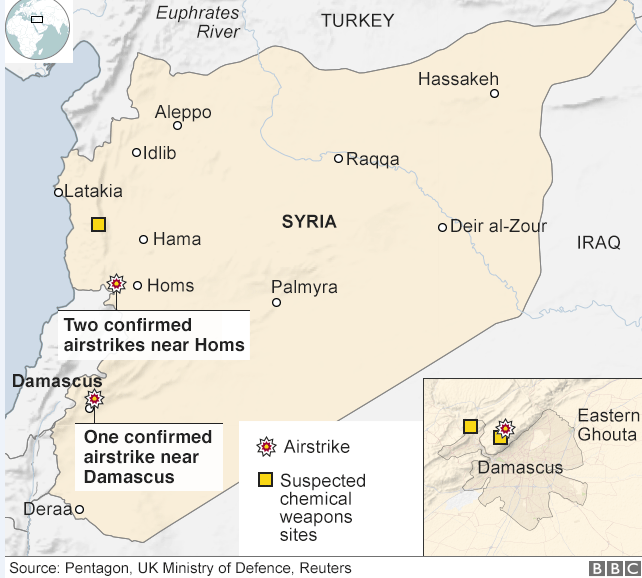
On Saturday, the Ministry of Defence said eight Storm Shadow missiles had been launched by four RAF Tornados at a former missile base, 15 miles west of Homs.
It is thought President Bashar al-Assad's regime had been stockpiling materials used to make chemical weapons there, it said.
A spokesperson added the facility was located "some distance" from "concentrations of civilian habitation", and the risk of contamination to the surrounding area had been minimised.
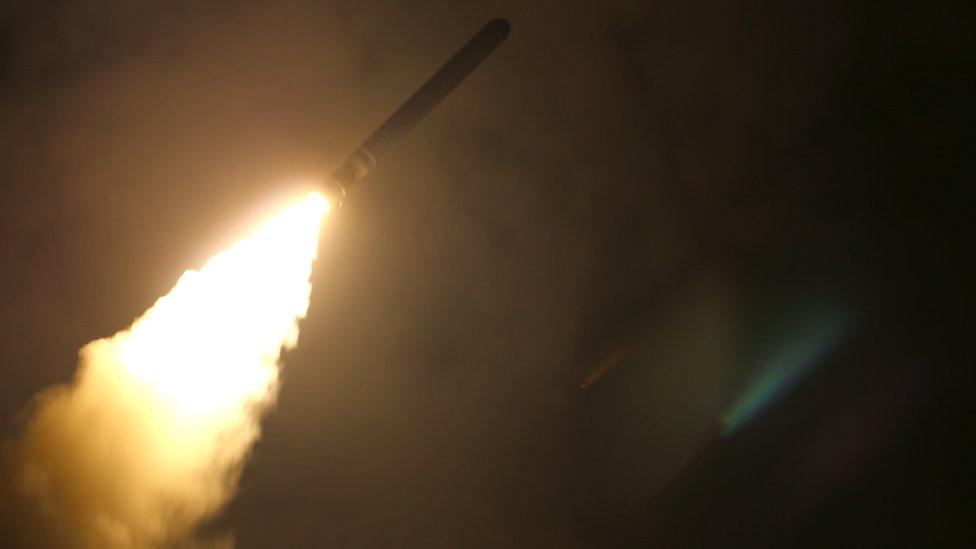
More than 100 missiles were fired at the three sites
The UK and US have said the strikes were successful, with President Trump warning of further action if there are more chemical attacks.
On Saturday, the UN Security Council rejected a resolution drafted by Russia while all Nato allies have given the military action their full support.
There has been no confirmation of any civilian casualties.
- Published14 April 2018
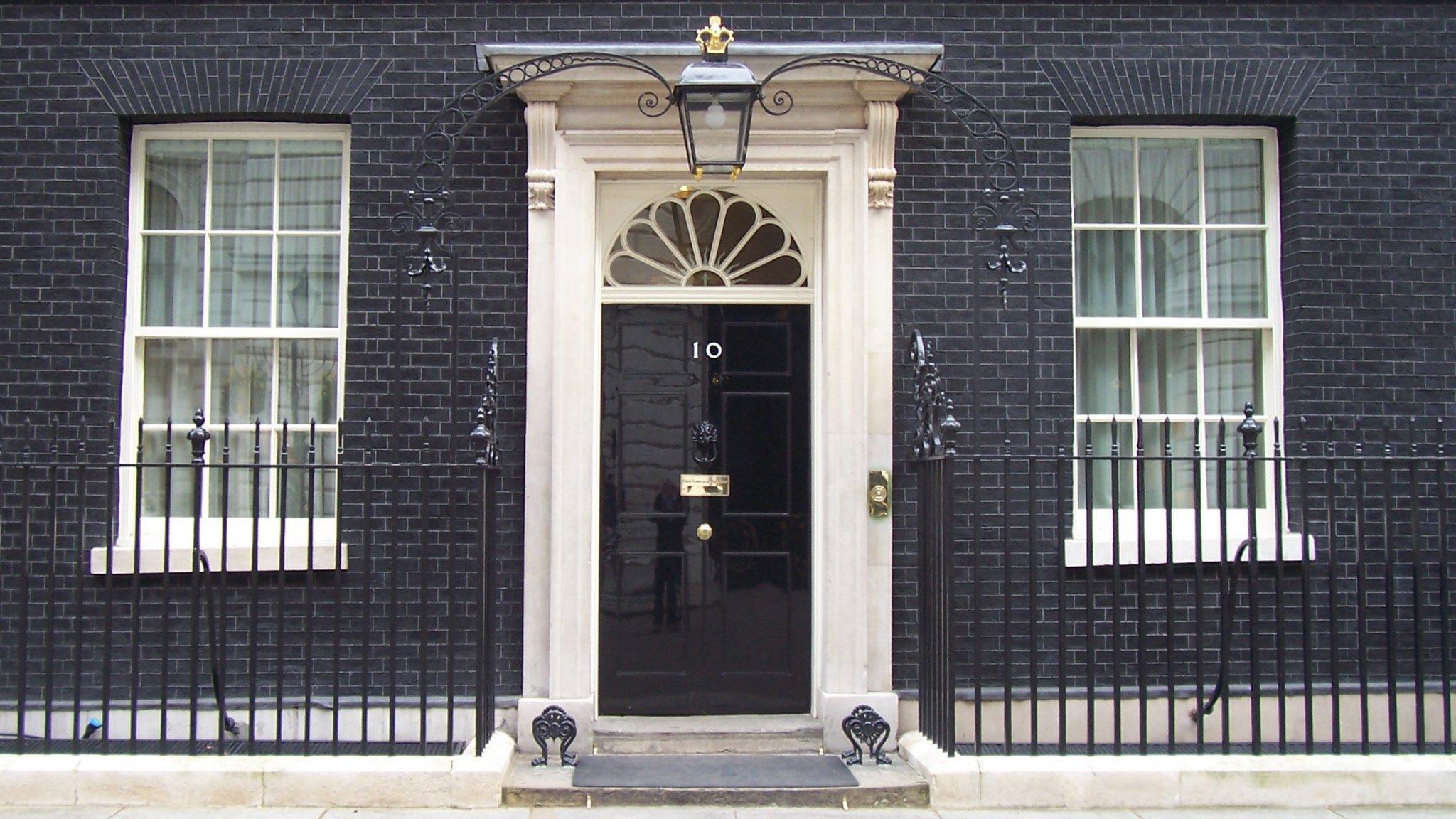
- Published14 April 2018
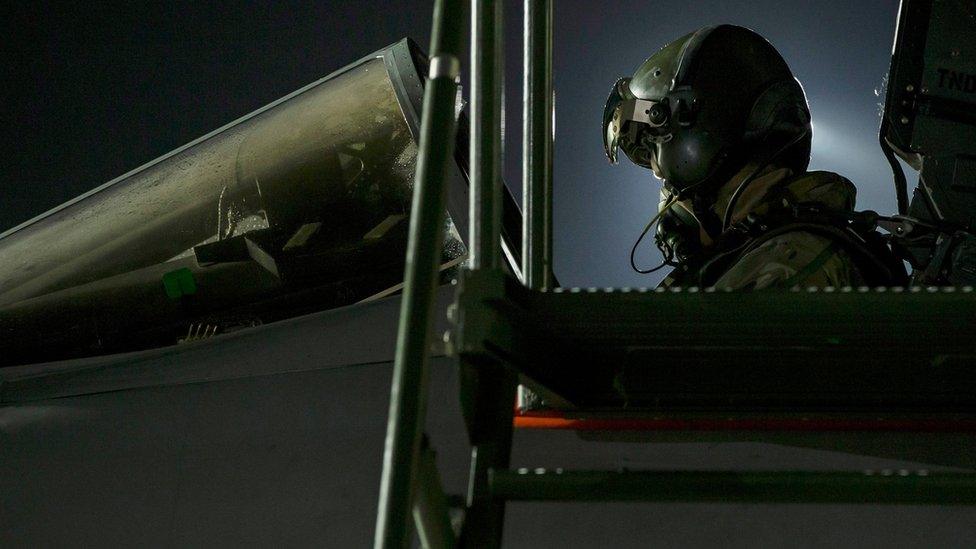
- Published14 April 2018
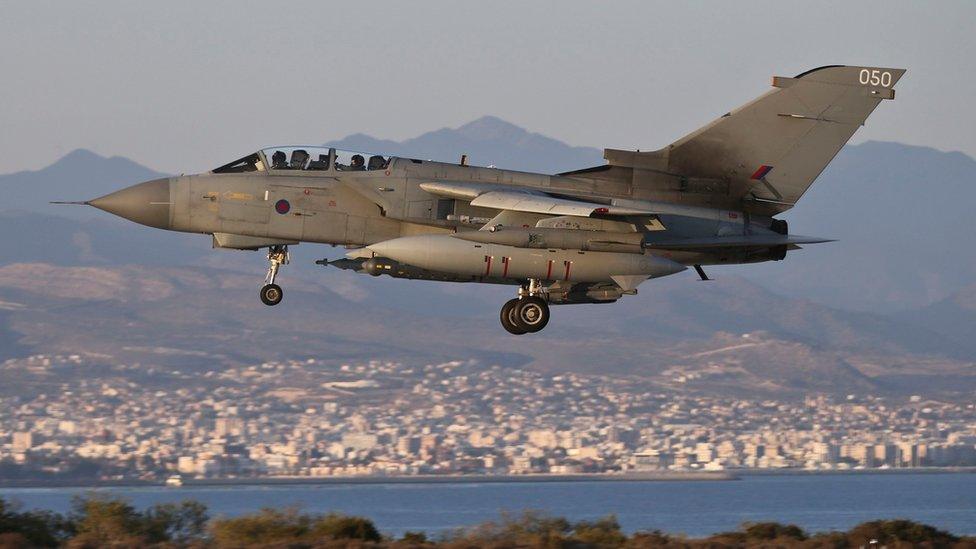
- Published14 April 2018
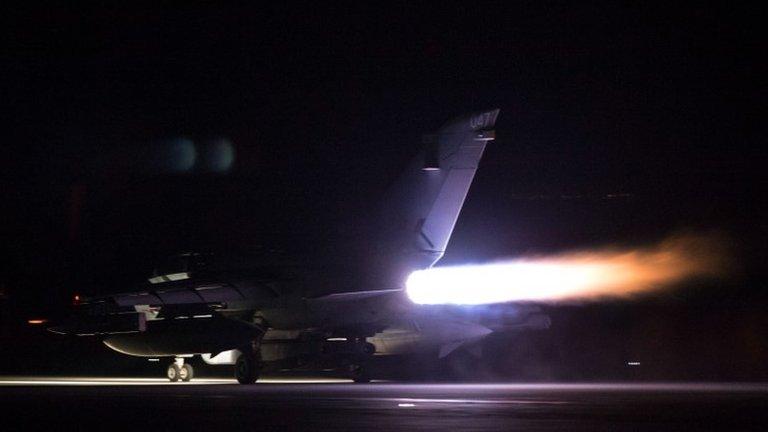
- Published14 April 2018
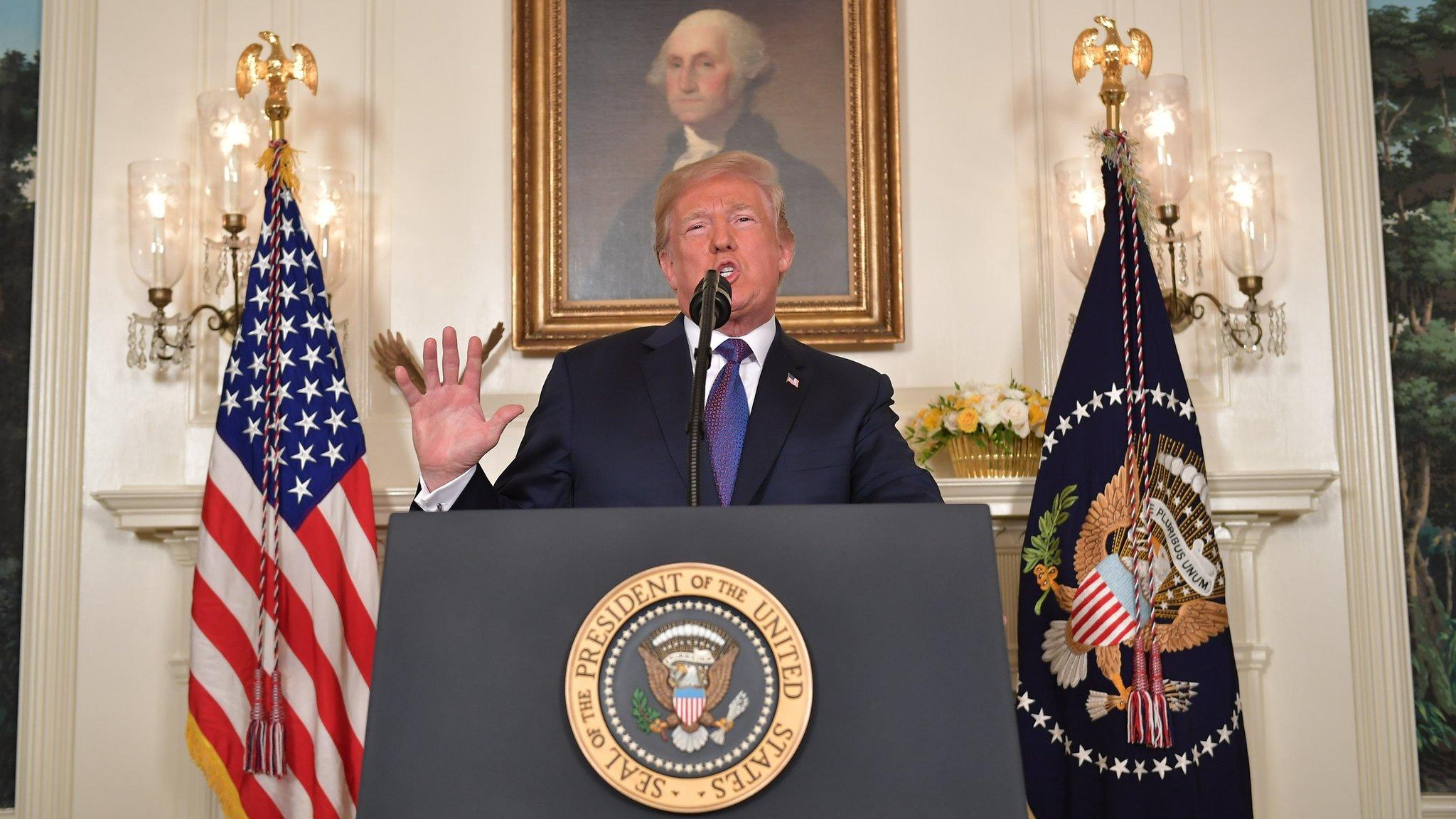
- Published14 April 2018
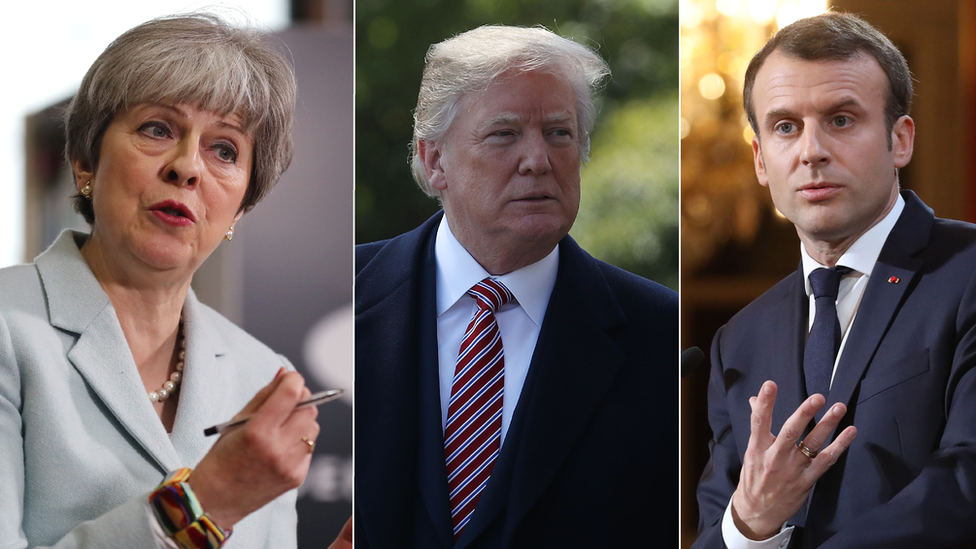
- Published14 April 2018
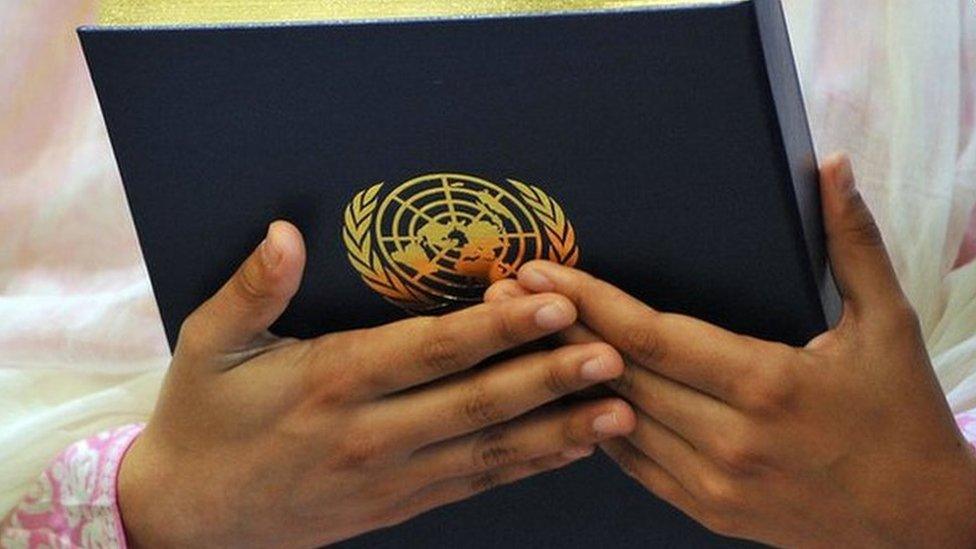
- Published14 April 2018
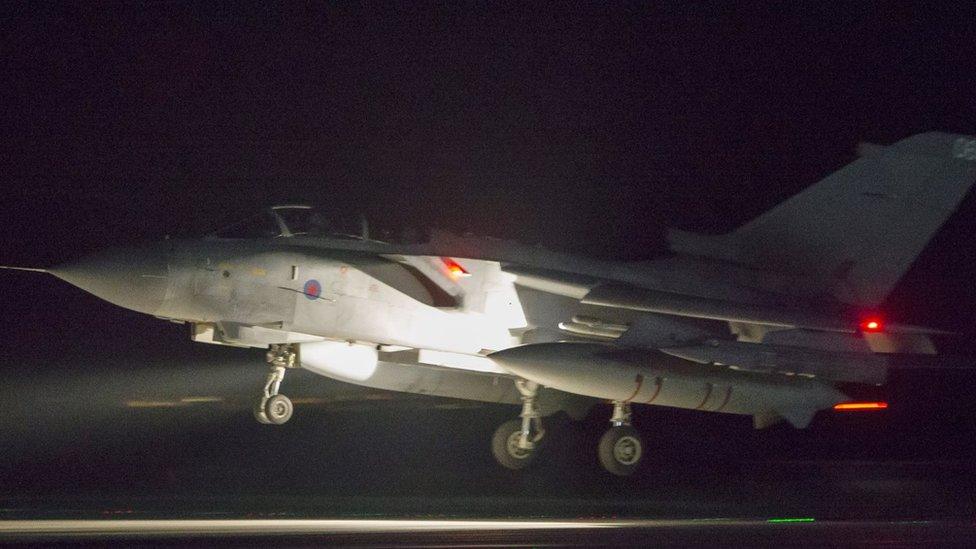
- Published12 April 2018
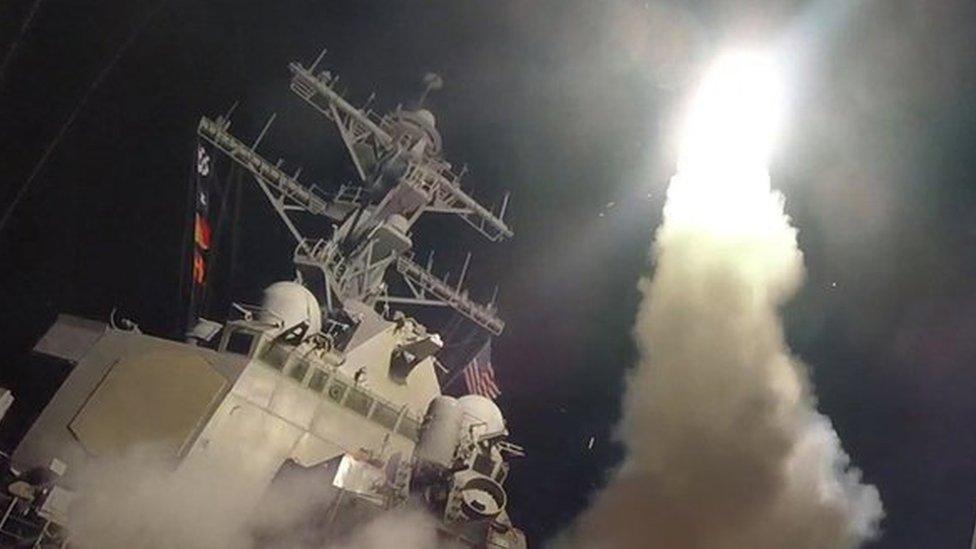
- Published14 April 2018
